Patients in the national capital faced a harrowing time as resident doctors at several government hospitals went on strike and withdrew all services including that at the emergency department to protest against a key legislation that seeks to regulate the medical education sector.

Hundreds of doctors at several government hospitals, including All India Institute of Medical Sciences, Ram Manohar Lohia Hospital, Safdarjung Hospital and LNJP Hospital, boycotted work, held marches and raised slogans to protest against the National Medical Commission Bill which was passed by the Rajya Sabha on Thursday.
They doctors had threatened to continue their strike for an indefinite period if the bill is passed.
The bill, which seeks to replace the graft-tainted Medical Council of India (MCI), got the nod of Lok Sabha on July 29.
Protests by resident doctors and undergraduate students of AIIMS and Safdarjung hospitals hit traffic on the stretch of road between Ring Road and Parliament as they tried to march towards Parliament. They were detained by police.
Another group of doctors, associated with Federation of Resident Doctors' Association (FORDA), who had planned to march to Parliament from RML Hospital, were prevented from venturing out, FORDA's general secretary Dr Sunil Arora claimed.
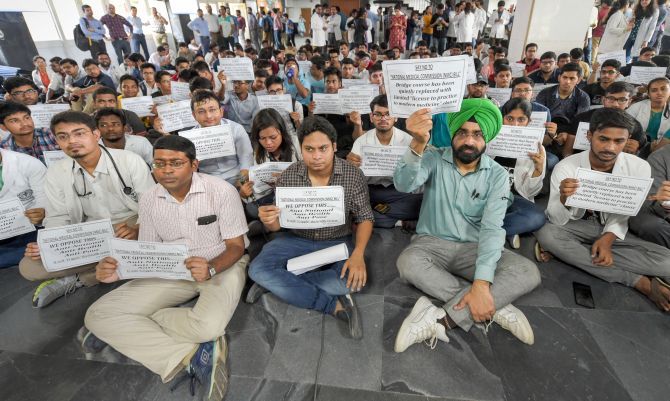
Patients unaware of the stir reached hospitals only to return or wait interminably to be attended.
Resident doctors of Lok Nayak Jayaprakash Hospital, B R Ambedkar Medical College and Hospital, DDU Hospital and Sanjay Gandhi Memorial Hospital have also boycotted work and joined the stir.
At LNJP Hopsital, Delhi government's largest facility, the entire OPD was shut and emergency department saw very few patients.
"We have a footfall of 9,000 per day in the OPD, and about 900 visit ER facility. Today, many patients, a large number of them from outstation cities, had to go back as the OPD is closed.
"In ER department, about 300 have visited so far, and we are managing with medical teaching staff from our college," LNJP Medical Superintendent Kishore Singh said.
WATCH: Doctors stage protest against NMC bill in Hyderabad
Pankaj Pandey, a resident of Ghaziabad, had come for his check-up but had to wait for long hours, and eventually had to return home in vain.
The emergency departments and ICUs at many hospitals were managed with the help of faculty members, sponsored residents, pool officers, faculty members of other medical or surgical departments, while OPDs, radio-diagnosis and laboratory diagnosis services functioned on a 'restricted basis' in some health facilities and shut at many other places.
Routine surgeries were cancelled and only emergency cases were taken in several facilities, authorities said.
"We usually perform around 150-180 surgeries in a day. All the routine planned surgeries were cancelled and only emergency cases were attended to," Dr Sunil Gupta, Medical Superintendent at Safdarjung Hospital said.
Hospitals in the national capital put in place contingency plans as regular services were severely affected.
Patients, many from neighbouring cities, bore the maximum brunt of the strike as they faced a lot of hassle in accessing medical care or waited for long hours at OPDs of hospitals due to shortage of staff.

Sixty-year-old Shashi Devi, a native of Uttar Pradesh, said she along with her ill son and husband reached the national capital on Wednesday, and wanted to consult a doctor for her son on Thursday, but could not do so and was asked to come later.
"We are hearing that the strike is for an indefinite period. I don't know how we will manage our stay in Delhi, as since yesterday we are on the pavement of the road facing the AIIMS," she rued.
The medical fraternity is opposing the bill saying it was 'anti-poor, anti-student and undemocratic'.
The Indian Medical Association, which has also expressed reservations over several sections of the bill had given a call for a 24-hour withdrawal of non-essential services on Wednesday across the country.
In a statement it has warned the government of intensifying the agitation if the grievances of the medical fraternity are not addressed.
"The provisions of the said bill are nothing short of draconian and promote gross incompetence and mockery of professionals currently working day and night and sacrificing their youth for this broken system."
"If it is tabled in its current form in Rajya Sabha without any amendments, the medical fraternity across the country will be forced to resort to extreme measures, which may hamper healthcare services nationwide. We will withdraw from essential and non-essential services from hospitals for an indefinite period," the AIIMS RDA, the FORDA and the Untied-RDA said in a joint statement.
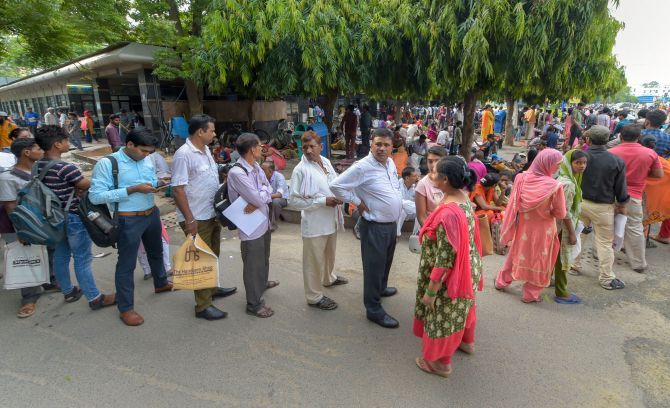
The Bill provides for setting up of a National Medical Commission in place of the MCI for development and regulation of all aspects of medical education, profession and institutions.
Doctors are demanding certain amendments in the bill. According to them, if not amended, the bill will lead to deterioration of medical education and degradation of healthcare services.
The fraternity is opposing Section 32(1), (2) and (3) of the bill saying it will encourage quackery by providing licence to practice modern medicine as community health providers for persons other than those possessing MBBS degrees.
They expressed uncertainty over the introduction of NEXT and scrapping the NEET-PG. They are also opposing decreasing the percentage of seats under controlled fees structure in private medical colleges and deemed universities from 85 to 50 per cent, reducing the representation of elected members from 75 per cent in MCI to 20 per cent in National Medical Commission and autonomous boards constituted there-under.
They are objecting to section 45 of the bill, which, they claim, empowers the Union government to override any suggestion of the National Medical Commission.
The bill proposes a common final-year MBBS examination, to be known as the National Exit Test (NEXT), for admission to post-graduate medical courses and for obtaining a licence to practise medicine.
It would also act as a screening test for foreign medical graduates, official sources said.
Meanwhile, the Rajya Sabha on Thursday passed the bill, in what was described by the government as one of the biggest reforms for medical education in the country.
The bill was passed by a voice vote, amid a walkout by the All India Anna Dravida Munnetra Kazhagam.
Union Health Minister Harsh Vardhan, in his reply, on the debate on the bill said NEET is already an institutionalised body which is conducting examinations in 13 languages.
"Once the NMC Bill is approved, exit examination will be implemented in the next three years," the minister said.
The minister said NEET Counselling is completely transparent and thanked senior Congress leader Ghulab Nabi Azad for his valuable suggestions.
The bill also has a provision for making national standards in medical education uniform by proposing that the final year MBBS exam be treated as an entrance test for PG and a screening test for students who graduate in medicine from foreign countries.
This exam, called the National Exit Test (NEXT), would ensure that the proposed National Medical Commission (NMC) moves away from a system of repeated inspections of infrastructure and focuses on outcomes rather than processes, Vardhan said.








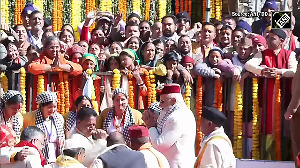
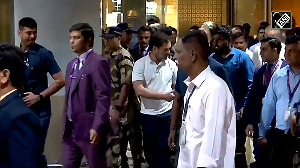
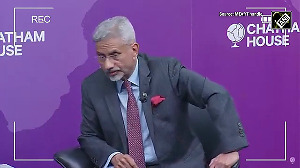
 © 2025
© 2025